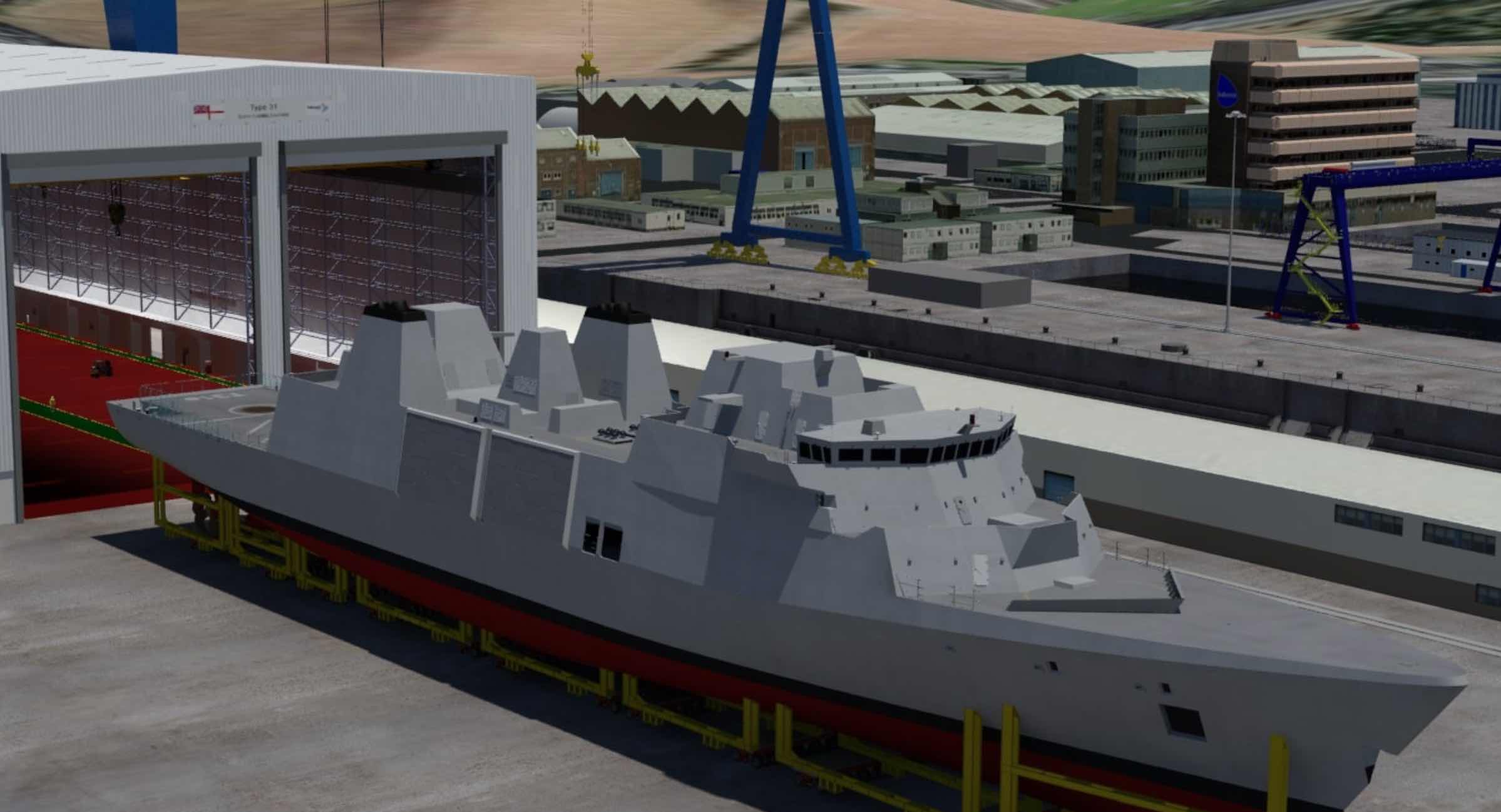This week, the UK Government finally published its long-awaited Integrated Review of Security, Defence, Development and Foreign Policy that highlighted ‘building ships in Scotland’, and a commitment to move away from a previous policy of ‘‘competition by default’.
The document also revealed new details about a planned new Multi-Role Ocean Surveillance Ship for the Royal Navy and reaffirmed prior plans to develop a new class of Type 32 Frigates as well new Fleet Solid Support Ships.
The IR said the new Multi-Role Ocean Surveillance Ship would demonstrate the UK’s ‘more integrated approach in practice’ with the vessel being tasked with protecting critical national infrastructure at sea such as undersea cables and ‘improving our knowledge of the maritime environment.’
The document also said: “The Royal Navy’s Offshore Patrol Vessels, alongside the UK Border Force, will continue to support border surveillance, shipping safety, maritime environmental protection, fishery activity control, search and rescue operations and customs enforcement.”
The document also said spending would ‘deliver’ the UK’s plans for eight new Type 26 Frigates being built by BAE Systems and five new Type 31 Frigates that are to be built by Babcock.
In a statement, Babcock – makers of the Type 31 Frigate – told Naval Technology: “We welcome the themes of the Integrated Review, including the recognition of a shift to a more technology and innovation-based defence strategy.
“It’s also good to see that there is a clear aim to build on the UK’s relationships with key partners such as France, Australia, Canada and New Zealand; all countries in which Babcock has defence operations today.”
The IR also promised to implement a new defence and security industrial strategy – set to be aligned with the Government’s plans for growth. On this, the document reads: “It will constitute a more strategic approach to our core industrial base, from building ships in Scotland and armoured vehicles in Wales to manufacturing aircraft in England and satellites in Northern Ireland.”
Unions respond
The document also said the UK would move away from the 2012 ‘competition by default’ policy to prioritise ‘UK industrial capability’ where necessary for national security or operational reasons.






